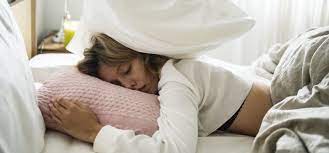Can Hangovers Cause Sunday Scaries?
Hangovers are stressful. People often worry about what they might have said or done while drinking. There are many symptoms of hangovers and some treatments are available. If you’re concerned about hangover anxiety, read this Wish.com article. We’ll discuss why hangovers are stressful and how to get rid of them. Hangovers are not a common ailment, but they are not something you should ignore.
Physical symptoms of hangovers
While the severity scores of hangovers can provide useful information, these ratings don’t always indicate how bad the symptoms are. Severity scores only reflect the frequency of a symptom; they do not always indicate how bad it will affect an individual. Mild headaches, thirst, and problems concentrating are the most common hangover symptoms, but vomiting and nausea are not nearly as common. Even though those symptoms may be annoying, they will not interfere with one’s ability to carry out basic daily activities.
Over-the-counter pain relievers may also help you minimize the effects of a hangover. However, be careful because some NSAIDs may irritate the stomach lining and increase the risk of liver damage. You should consult your doctor or a medical professional if you experience frequent hangovers. For serious alcohol poisoning, seek immediate medical attention. However, avoid NSAIDs and alcohol-based pain relievers.
Causes of hangxiety
There are many potential causes of hangxiety. For many people, hangovers are a result of too much drinking or overindulgence in general. However, these symptoms can lead to depression, anxiety, and other underlying conditions. Many studies have identified a connection between these factors and hangover anxiety. The symptoms of hangxiety can be triggered by exaggerated muscle pain and stress from underlying factors.
Alcohol affects multiple neurological pathways, but the gamma aminobutyric acid (GABA) pathway is one of the most important. Alcohol increases GABA levels, which are responsible for several functions in the brain. GABA is a neurotransmitter that has the same function as dopamine – it inhibits anxiety. To combat this effect, many people take benzodiazepines. In addition to its depressing effect, alcohol can cause a spike in anxiety and depression.
Other causes of hangxiety include dehydration, nutrient depletion, and lack of sleep. Although there is no single cause, these factors are associated with a higher risk of experiencing hangxiety. Highly shy people are at increased risk for developing anxiety while having a hangover. Also, it is important to note that hangovers are not universal. People with anxiety or social phobia may be more likely to experience hangxiety.
Treatments
Some people drink too much alcohol and suffer from hangxiety, but this problem is not common. While it is not a disorder, it may be a symptom of a more serious problem. If hangxiety interferes with your life in a significant way, you should seek professional help. A hangover treatment is available for both men and women and can be used to control or reduce the symptoms.
While alcohol may alleviate the anxiety you experience, excessive drinking can lead to other issues. Alcohol use disorder, substance abuse, and a variety of other problems can be caused by alcohol misuse. Although exercise can help some people who suffer from hangxiety, it’s not a cure-all. The best treatment for hangover anxiety involves focusing on your physical health. Drinking enough water and ensuring that you get enough rest may help alleviate your symptoms.



